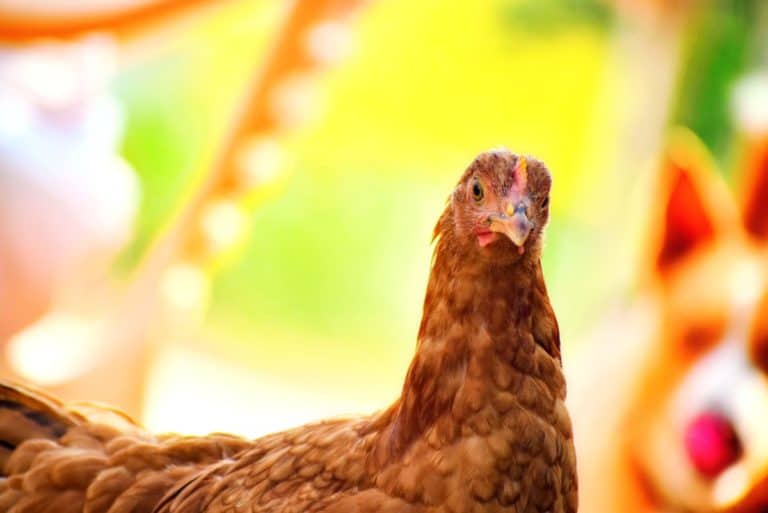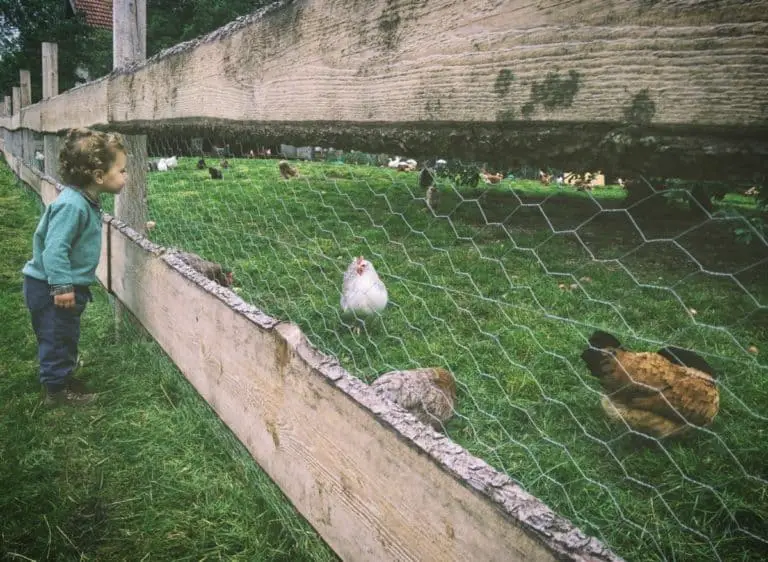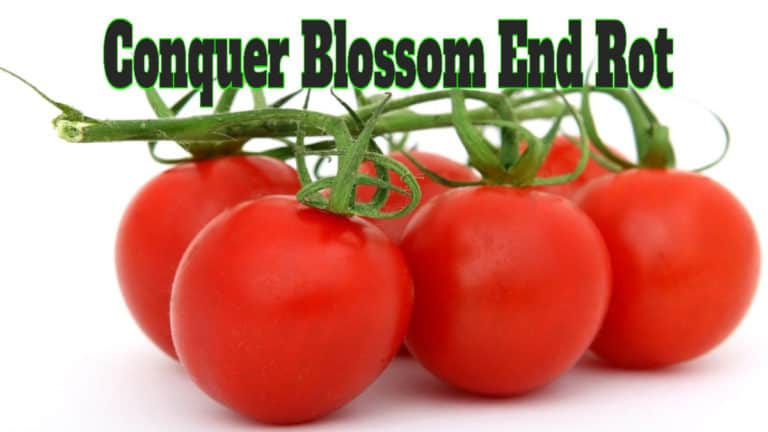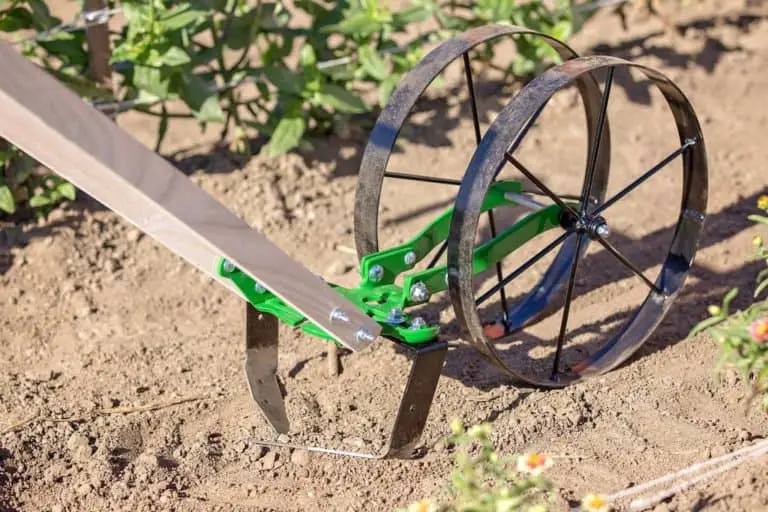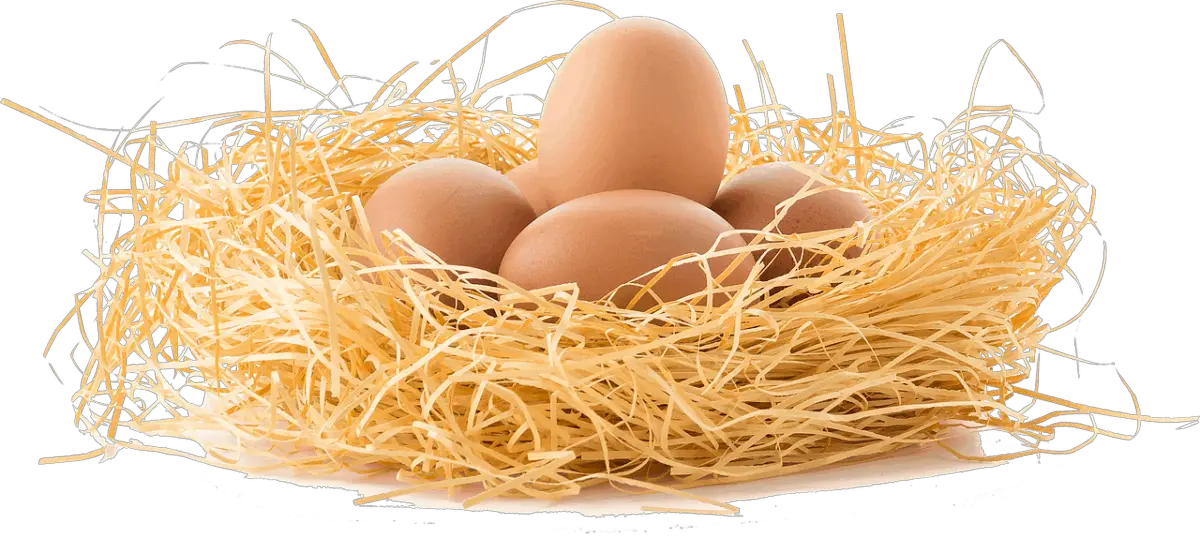
There are many reasons for egg production to diminish in your flock. Here are some simple remedies that can spur them to renew their laying routine.
Genetics, age, stress, and diet can all contribute to a hen’s overall egg production. When a hen’s production falls, it’s time to assess these factors, to help your chickens return to the egg production you once enjoyed.
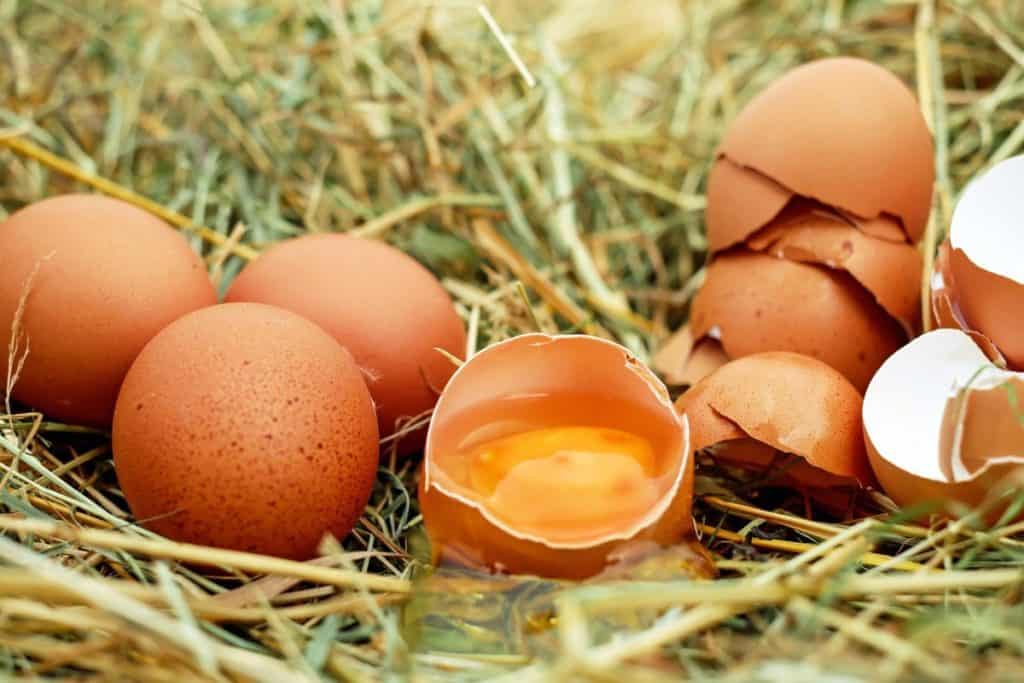
Here are some of the top laying breeds:
| Breed | Approximate Eggs Per Year |
| Australorp | 360 |
| Lowman Brown Classic | 320 |
| Rhode Island Red | 260 |
| Sussex | 250 |
| Golden Comet | 250+ |
| Leghorn | 200 |
| Maran | 200 |
| Plymouth Rock | 250 |
| Buff Orpington | 180 |
| Ameraucana | 170 |
Genetics Play A Huge Part
As you can see from the table, there is an enormous difference in laying prowess from breed to breed. Remember, the chickens listed above are some of the best laying breeds, so if your hen isn’t a breed that is as prolific as these, don’t expect them to rack-up these same yearly totals. They probably won’t, and it’s not their fault.
The above breeds are mostly heritage breeds, but there are other breeds that are hybridized for massive production. Breeds like Sex Links, Production Reds (both brown egg layers) and others are bred specifically for egg production, and they can compete with any of these listed above.
So, the first consideration is the genetics of the hen. What breed of chicken is she? Some breeds are genetically predisposed to large production numbers, and some are not. So, care should be taken when purchasing chickens for egg production. If they are just going to be pets, it’s not that important.
Age Is A Big Factor
The lifespan of a chicken is around 5 years with many living 2 or 3 years longer than that. And yes, it would be nice if during her entire life she produced abundant eggs for you. But she won’t.
Fun Fact: The oldest chicken on record was 16 years old!
However, a hen’s egg production peaks at 1.5 to 2 years. Most commercial egg producers start culling their hens at two years. They are just not efficient at converting feed to eggs any longer than that.
For that reason, you shouldn’t expect your older hens to maintain the production schedule you once enjoyed. They will typically begin to fall off their schedule at around two years of age, or even earlier.
There are a few things that we will discuss below that might prompt them to increased production, but that production will be temporary. They are just getting too old to be profitable.
But, since we all get attached to our chickens, and would like to keep them longer, let’s look at a few other factors that might change their laying habits in a positive manner, and put eggs in the box.
Light
The amount of light a chicken receives each day can be a huge factor. You will notice that in the fall and winter months egg production (for some breeds) will diminish significantly. It’s because the days are getting shorter. The shorter the days, the fewer hours of sunlight the chickens have.
So, to counteract nature, I put a bright light (I use a 4′ LED shop light) in their chicken pen at the beginning of the fall. I also use a timer that will turn the Shop Light (my Amazon affiliate link) on about an hour before dark and stay on about an hour after dark. I also set the timer (my Amazon affiliate link)to come on an hour or two before dawn and turn off after full daylight.
Chickens need around 14 hours of natural daylight, and although this is not “natural daylight, it still gives the chickens 3 or 4 more hours of “light”. Many times this will do the trick and production will be maintained during the colder, darker months. By the way, I pick an LED that has the full spectrum of light in it. I’m trying to mimic the sun’s light spectrum. Look for an LED labeled “daylight“.
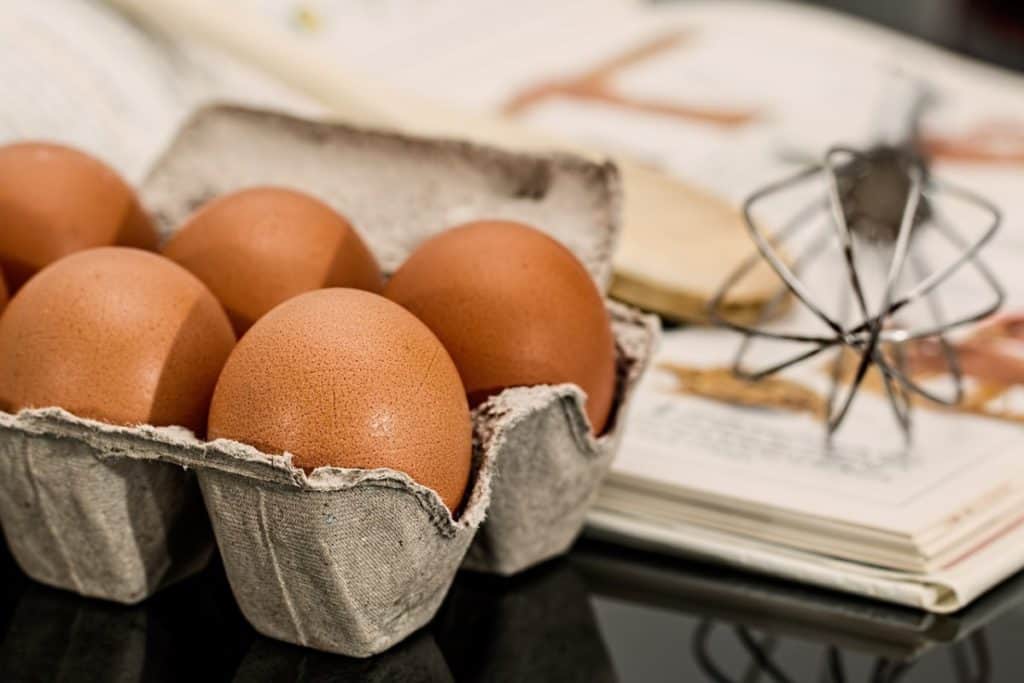
Stress Is A Factor
Happy chickens can be laying machines, so their life should be as stress-free as possible. I’ve noticed that if a stray dog comes around barking at them or scaring them, it can affect their egg production for several days. This is also true if I find a predator has come around at night.
Also, if their pen is dirty, if their water is not fresh and clean, if their nestboxes don’t have fresh material in them, or if their floor bedding needs to be changed… All these things and more can contribute to an unhappy chicken, which can mean an empty nestbox for you. Not what you want.
Production Tip: Use a “Rollaway” Nestbox
I try to make my chickens and other homestead projects as labor-free as I possibly can. For that reason, I use a “rollaway” type nest box. These boxes don’t have any bedding material in them. They have a “mat” that the chicken lays on, then the egg rolls down into the egg tray for gathering.
This almost eliminates “egg pecking” and hens going “broody”. They also don’t have to be cleaned out like a regular nest box. And, the eggs come out just about perfectly clean every time. You typically don’t have to wipe mud or poop off of the eggs before they can be used or sold. This saves me so much time. I absolutely love this type of Nest Box (my Amazon affiliate link), and would never go back to a hay-filled nest box!
Feed As A Factor
My chickens love corn. They also love to eat “scratch grain” and will come running if they think I have some. “Scratch” has cracked corn, maize and other grains in it. However, if I feed my chickens only what they love instead of what they need, I will get very few eggs, because scratch grain does not have enough protein in it. So I feed a good “Laying Ration” to them, and give the scratch grain as a treat.
Chickens need a certain level of protein to maintain egg production. In fact, laying hens need around 20 grams of protein for continued egg production. Most laying rations are 16% Protein. That seems to be the standard of most feed producers for their lay feed, and that’s what laying hens need.
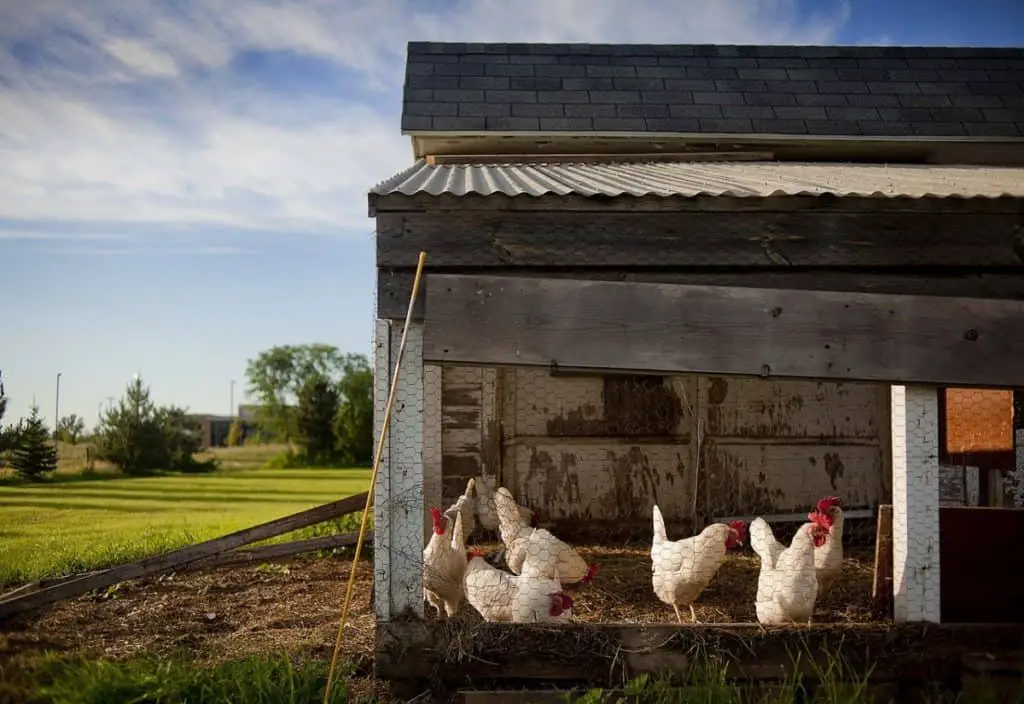
Quality laying rations also have all the minerals that the chickens need to produce healthy and thick eggshells. That is very important especially if you are selling eggs. A soft or thin eggshell is not desired because they can be damaged in the handling or shipping process, even if you are the end-consumer. Calcium is very important in making a good shell, and a good Lay Ration has the right percentage of calcium.
Find a good producer for your laying ration. I like to feed Lay “Pellets” instead of Lay “Mash” because I think my chickens waste less of it. The mash is much smaller, and can sometimes get hidden in their bedding. Lay pellets are larger and for that reason, I don’t think they waste as much of it. It may just be my personal preference, but I think it makes a difference.
Many producers feed their leftover eggshells back to their chickens to boost their egg production. This gives them a calcium boost that they need, and they love to eat them. However, use caution in doing this. Make sure you bake the eggshells and crush them to a finer consistency. You don’t want to encourage your chickens to eat their own eggs, so you should disguise the eggshells so they don’t really know what they are eating.
Broodiness
When hens go “broody” they will not lay eggs. Period. Going “broody” means she is dead set on becoming a “mama”. She’s ready to sit on some eggs and hatch them. As soon as her maternal mind is made up she will stop laying.
Most hybrid breeds have had the broodiness bred out of them. But many like that characteristic in a chicken, and will encourage it because they want little babies running around to replenish their stock, or to raise them for butchering.
Fun Fact: It takes about 23 days for a chick to hatch
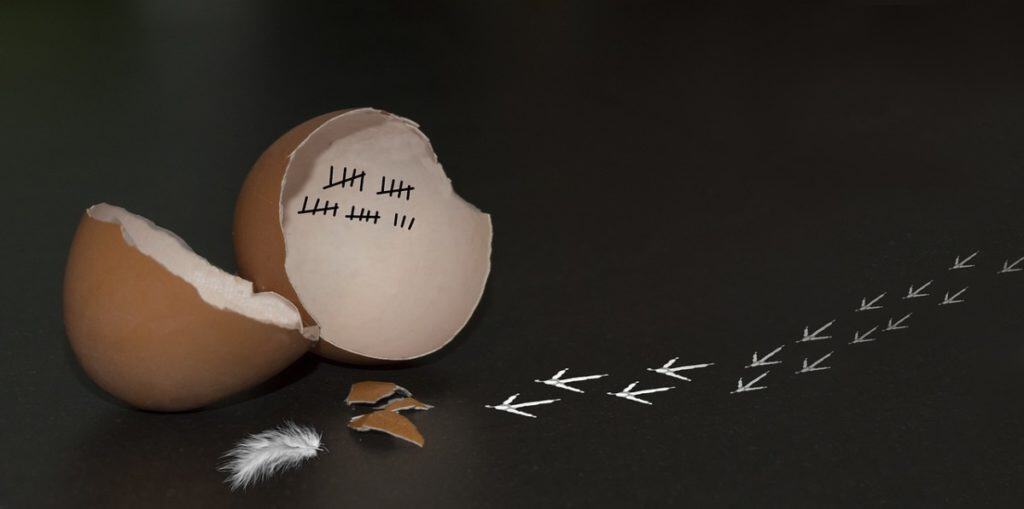
Broodiness is another reason I like the “rollaway nest boxes”. The hen lays the egg and it rolls down out of sight and out of mind. I haven’t had one go “broody” since I got my rollaway nest box.
Will Treats Affect Their Egg Production?
Not at all, in moderation. I give my chickens a little “scratch grain” every night. I also like to throw some broken-up slices of bread to them, and watch them fight over it like it was gold! Sometimes I will go to the bread “outlet” store and buy a bag of day-old bread for my animals. The chickens love it. So do cows, sheep, and catfish!
Just about any kind of kitchen scraps are a feast for the chickens. Meat scraps (remember, they need protein) and vegetable scraps are gourmet food for the chickens and they absolutely love it! I will also give them any lettuce or other greens as a treat. This not only makes them happy, but it will help cut down on your feed bill. The old expression “that’s just chicken feed” infers that chicken feed is cheap. That’s not true. Chicken feed ain’t cheap.
Keep in mind that the chicken needs a certain amount of protein each day for acceptable egg production, and if you give them a lot of scraps and other things that they love, they may not be hungry for the high protein laying ration that they need to lay eggs. So, moderation is the key.
I love to catch a cricket or grasshopper, throw it in the pen and watch the chickens play “keep-away” with it. One will steal it from another and run… And the cycle repeats itself till the bug is finally consumed. Fun stuff!
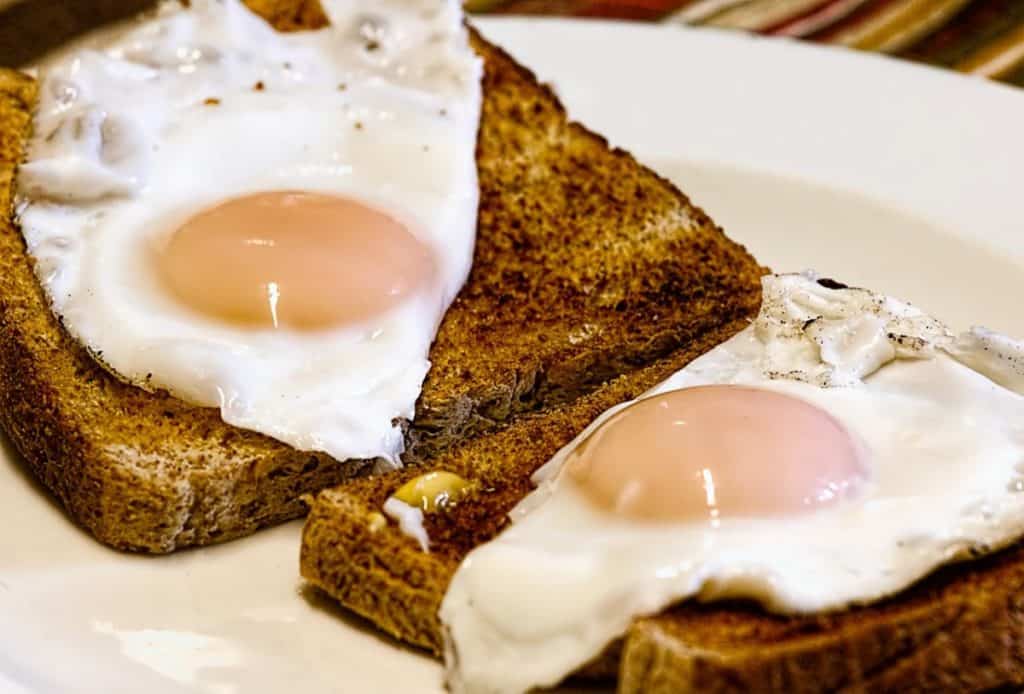
Some folks feed mealworms. I’ve never done this but I know chickens are crazy about them. Most people will raise the mealworms themselves, but there are places that sell them. They are high in protein and make a wonderful treat (my Amazon Affiliate link).
Molting Affects Egg Production
When days begin to get shorter chickens will go through a process called “molting”. It’s a time when they shed their old feathers for new ones. They look terrible during this time because they are half-bald, but don’t be concerned, it’s a natural process. During the molting process egg production will just about halt. I’m sure they are using the protein they consume to grow some beautiful new feathers, and not to make eggs.
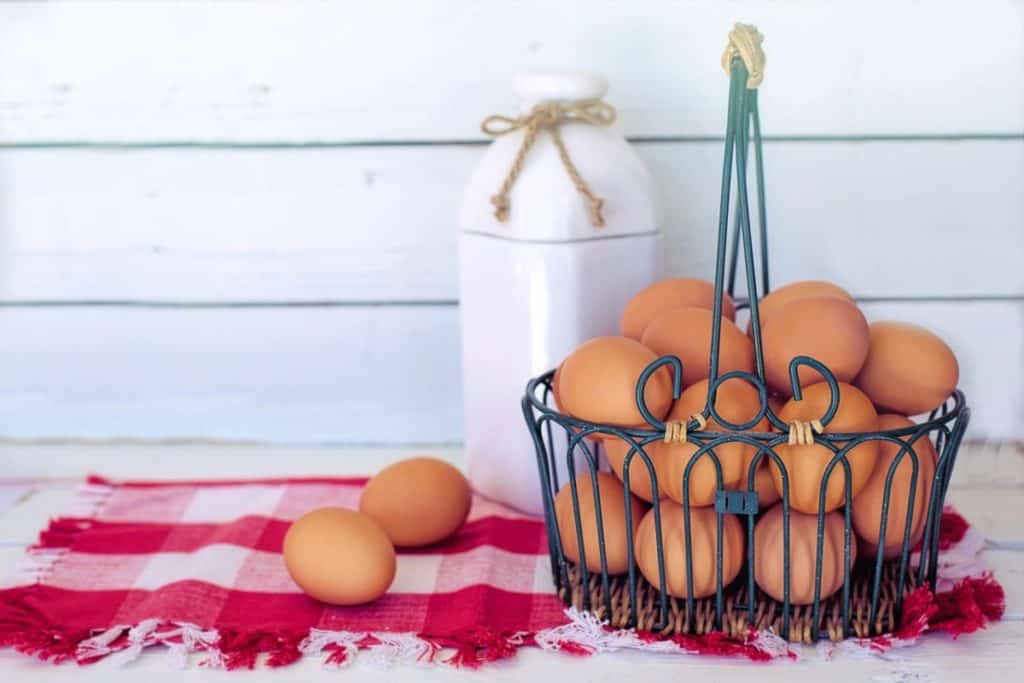
Sometimes every chicken in your flock will molt at the same time. If that’s the case, you probably won’t see any eggs for a couple of weeks.
What Did The Old Timers Do?
That’s always something I like to know. What did the farmers, a generation or two ago, do to remedy a situation that I might run into? So, here are a few things that have been told to me, and that I have tried, with varying levels of success.
Fasting Chickens: One chicken raiser told me that if his chickens stopped laying, or slowed down significantly, he would hold off feeding them for 24 hours. Then, he would give them a much higher protein ration (like a 28% Protein “game bird ration”) for a few days. He said this shocked their system and would induce them to return to production.
So I tried it on some older chickens that had slowed down on their egg production, and it worked for a while. But, as I said, they were “older” so the increase in egg production was temporary.
Cornbread and Milk: I’ve got to admit, being from the south, (and much to the disdain of my family) “cornbread-and-milk” is one of my favorite meals. And apparently, it’s a favorite meal for chickens too. An old-timer told me that many years ago farmers would put out buttermilk for the chickens to drink, and cornmeal for the chickens to eat, and it would increase their egg production.
It’s been a few years since I did this, but as I recall, I do think it helped a little, so it might be something you want to try. If it doesn’t work, make a batch of cornbread with what you have left… and Call Me!
If you’ve been frustrated with low egg production, I hope this has helped you with some steps that will bring your flock back to normal production. Try some of the methods listed here and see if they work for you!
I have an extensive YouTube Playlist touching every aspect of raising backyard Chickens on my Channel. You can find out much more about how to raise chickens HERE
Here’s a video explaining the “Shock Method” . Watch!
There are around 800 videos like this on my YouTube Channel dealing with egg production and other subjects like Homesteading, Livestock, Gardening, and Emergency Preparedness. You can find the home page HERE

